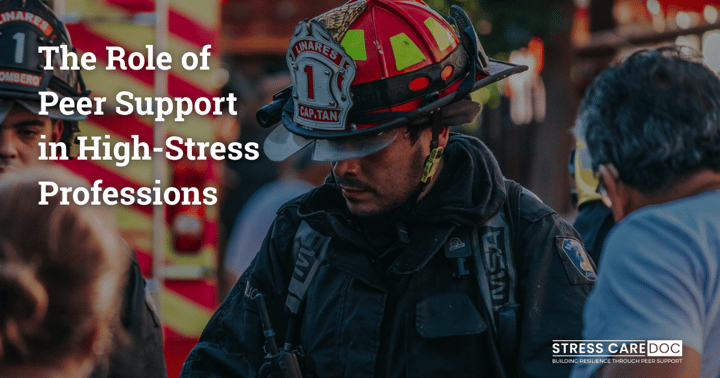10 Things Every Rookie Needs to Hear

Starting a career as a rookie in any frontline profession can be one of the toughest, yet most rewarding, paths you can take. You will face challenges and experiences that most people can’t even imagine. The emotional and mental toll can be significant, and without the right tools and support, it can become overwhelming. Whether you’re a new recruit or someone considering this career, there are ten key pieces of advice that can help you navigate the journey ahead.
1. Acknowledge Your Feelings
It’s normal to feel a wide range of emotions in this job. You might feel anger, sadness, anxiety, or fear after a critical incident. Ignoring these feelings doesn’t make them go away; it makes them worse. It’s important to recognize and accept your emotions. This is the first step towards managing them effectively. Consider keeping a journal to process your thoughts, and talk openly with trusted friends or peers about what you’re going through. Acknowledging your feelings is a sign of strength, not weakness.
2. Seek Support
Don’t be afraid to ask for help. Whether it’s talking to your peers, supervisors, or a mental health professional, seeking support is a lifesaver. Peer support groups can be especially beneficial because they provide a space where you can share experiences and coping strategies with people who understand what you’re going through. Remember, you don’t have to face these challenges alone.
3. Develop Healthy Coping Mechanisms
Finding healthy ways to decompress and manage stress is essential. Exercise, hobbies, spending time with loved ones, and practicing mindfulness and relaxation techniques can all help. Avoid falling into unhealthy habits like excessive drinking or isolating yourself. Instead, focus on activities that promote physical and mental well-being. Regular exercise, in particular, is a great way to reduce stress and improve your mood.
4. Stay Connected
Maintaining strong relationships with family and friends outside of work is important. It’s easy to become isolated in this job, but staying connected with your loved ones can provide much-needed support. Communicate openly with your spouse or partner about what you’re experiencing. You don’t have to share every detail, but letting them know why you might be acting differently helps them understand and support you better.
5. Educate Yourself
Learn about the signs and symptoms of trauma and stress. The more you understand what you’re experiencing, the better equipped you’ll be to find the right help. Knowledge is power. For instance, taking courses like the International Critical Incident Stress Foundation’s Psychological Body Armor™ can provide valuable insights and tools for managing stress and trauma.
6. Create a Self-Care Routine
Regularly schedule time for activities that support your physical, emotional, and mental well-being. This could include journaling, talking to family and friends, practicing relaxation techniques, eating a healthy diet, getting enough sleep, and exercising regularly. Setting boundaries and learning to say “no” when necessary is also important. Remember, self-care is not selfish; it’s essential for your overall health and effectiveness in your role.
7. Be Patient with Yourself
Healing from traumatic experiences takes time. Don’t pressure yourself to “get over it” quickly. Give yourself permission to process things at your own pace. Comparing your progress to others can be discouraging, so focus on your own journey and be kind to yourself.
8. Use Available Resources
Familiarize yourself with the resources your department offers, such as Employee Assistance Programs (EAP), counseling services, and peer support teams. These resources are there to help you, so don’t hesitate to use them. They can provide valuable support and guidance when you’re struggling.
9. Create Margin
Creating margin means setting aside time for rest and activities you enjoy. This helps you handle stress better and avoid burnout. Think of it as giving yourself a buffer zone so you’re not constantly overwhelmed by work and life demands. Make time for hobbies, relaxation, and spending quality time with loved ones.
10. Stay Informed About Mental Health
Continue to educate yourself about mental health and wellness. Understanding the importance of mental health can help you prioritize it throughout your career. Taking care of your mental health is just as important as taking care of your physical health. It’s a sign of strength to ask for help when you need it.
Starting a career as a first responder is challenging, but with the right tools and support, you can thrive. Acknowledge your emotions, seek support, develop healthy coping mechanisms, and stay connected with loved ones. Educate yourself about the signs of trauma and stress, and create a self-care routine that supports your overall well-being. Be patient with yourself and use the resources available to you. Creating margin in your life and staying informed about mental health are also keys to maintaining a healthy work-life balance. By integrating these practices into your routine, you’ll be better equipped to handle the stresses of the job and enjoy a fulfilling career.
Remember, you are more than your job. You are a son, daughter, partner, friend, and so much more. Taking care of yourself means you can better take care of others. Stay strong and take care of yourself—you’re worth it.





